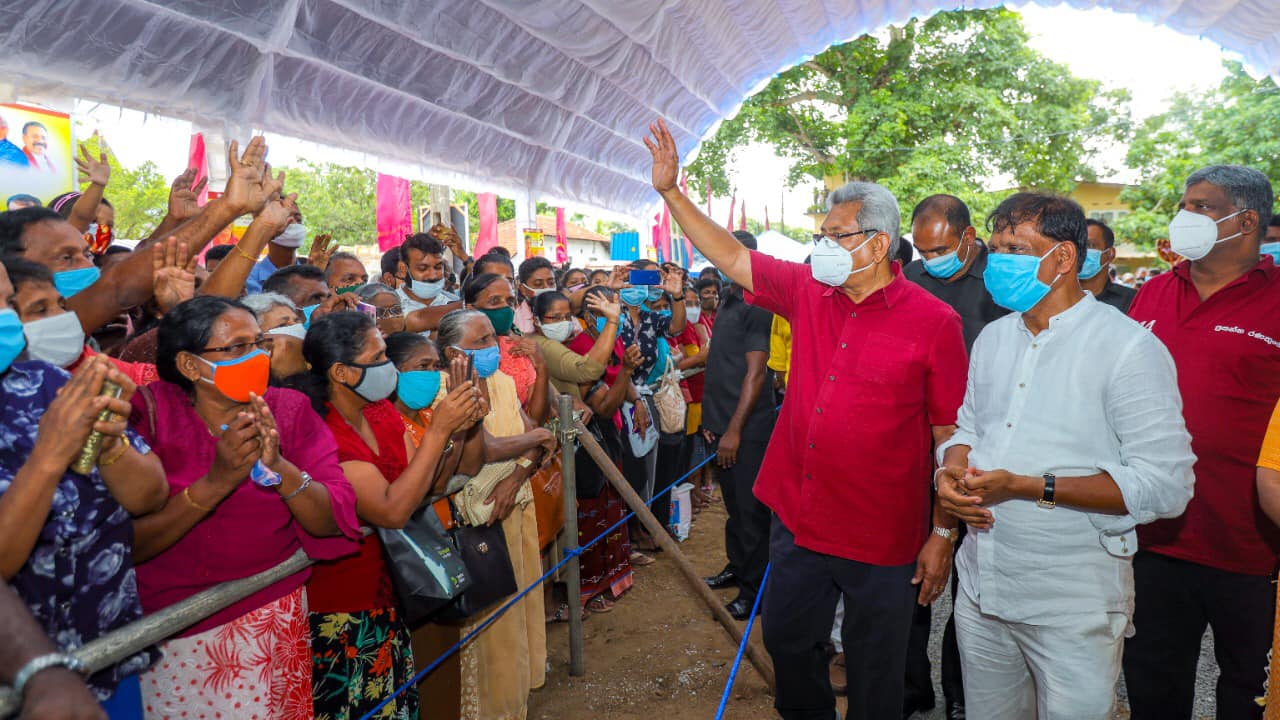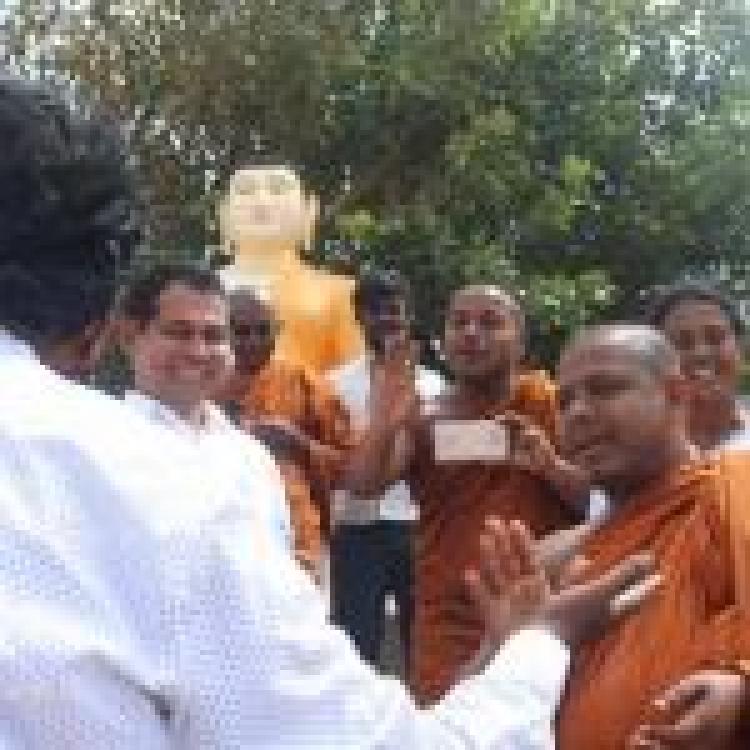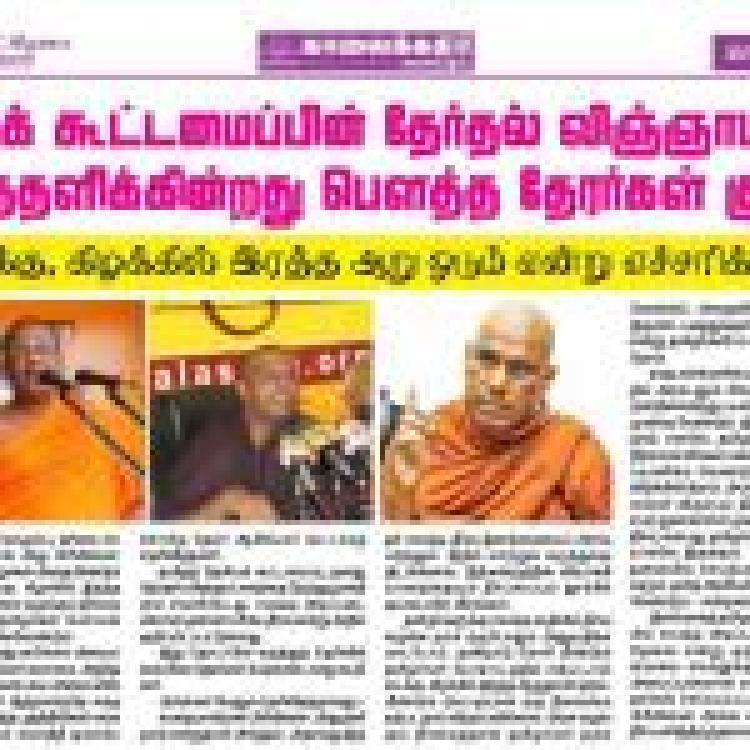
During an SLFP rally in the city of Kelaniya, in Colombo, Sri Lankan President, Gotabaya Rajapaksa, vowed to tackle the drug menace whilst preserving the “city’s historical heritage”.
The announcement follows the declaration of another all-Sinhala committee for the protection of archaeological sites and the creation of a task force to establish a more “disciplined” society.
Sinhalisation
During the rally, the Maha Sangha, who was present, praised the President. This follows reports that he is considering further amendments to the Antiquities Ordinance, an act that is intended to conserve archaeological heritage sites and buildings, as the Buddhist clergy has called for power over land disputes in the North-East connected to Buddhist colonisation be transferred to courts in the South.
This amendment, which would seek to strengthen the protection of heritage sites, is seen as a step towards Sinhalisation.
Earlier this year, an all Sinhala Buddhist task force including military personnel was established in the East to ‘preserve the historical heritage of Sri Lanka’; Tamils have since expressed fears of their land being appropriated by the task force. A US State Department Report on International Religious Freedom in 2016 stated that the construction of Buddhist statues in non-Buddhist areas of the North-East leaves the perception of “Buddhist Sinhalese religious and cultural imperialism.” In recent times many Buddhist statues and temples have been constructed in Tamil areas, often replacing or damaging Tamil Hindu temples.
Tackling drug crimes
Rajapaksa’s promise to crack down on drug-related crimes comes after Sri Lanka’s Defence Secretary, and accused war criminal, Kamal Gunaratne also intended to employ a ruthless approach and “vowed to eradicate Sri Lanka’s drug menace” last month. As a result, there has been an escalation in military surveillance and harassment in the North-East.
This also follows the widely panned creation of a Presidential Task Force designated for the establishment of a “disciplined, virtuous, and lawful society”. The task force has been described as a threat to the “rule of law” because of its broad and vaguely defined mandates to stamp out the “anti-social activities” and the “drug menace”. The task force has also been criticised as it appears it will be superseding already establish public agencies which raise concerns over accountability. Public officials who refuse to comply with orders from the task force may be threatened to be reported to the office of Sri Lanka’s President.
Development and flood resistance
Rajapaksa also committed to developing the region stating that he will take steps to reduce the flood risks in Gampaha district by renovating all the canals in the area as well as renovating the Ja-Ela city. He further stated that development for the region would follow his “Ten-Fold Kelani Declaration”.
Meanwhile, it has been reported that the North is suffering from one of the worst droughts the country has faced, last over three months. Authorities have been accused of failing to provide drinking water for people in the North.
Read more from the President's Media Division



